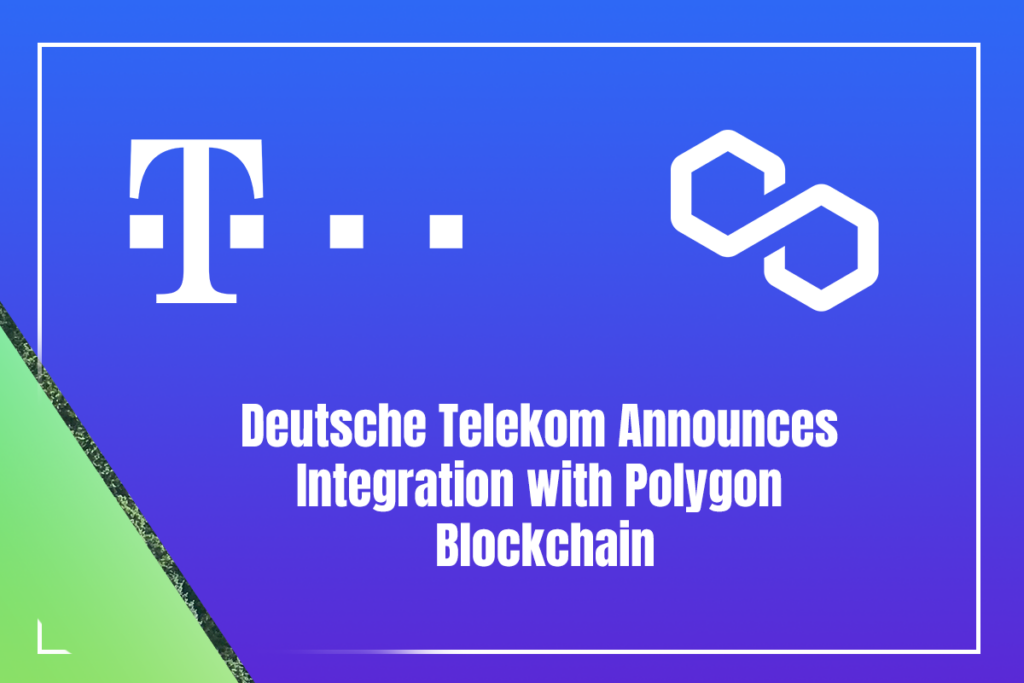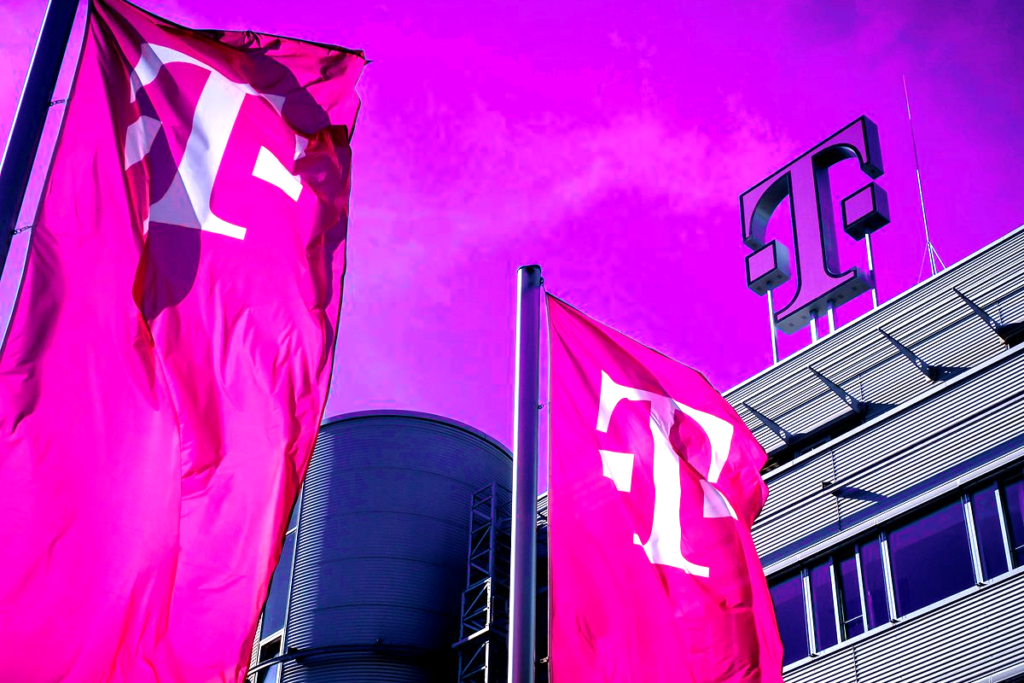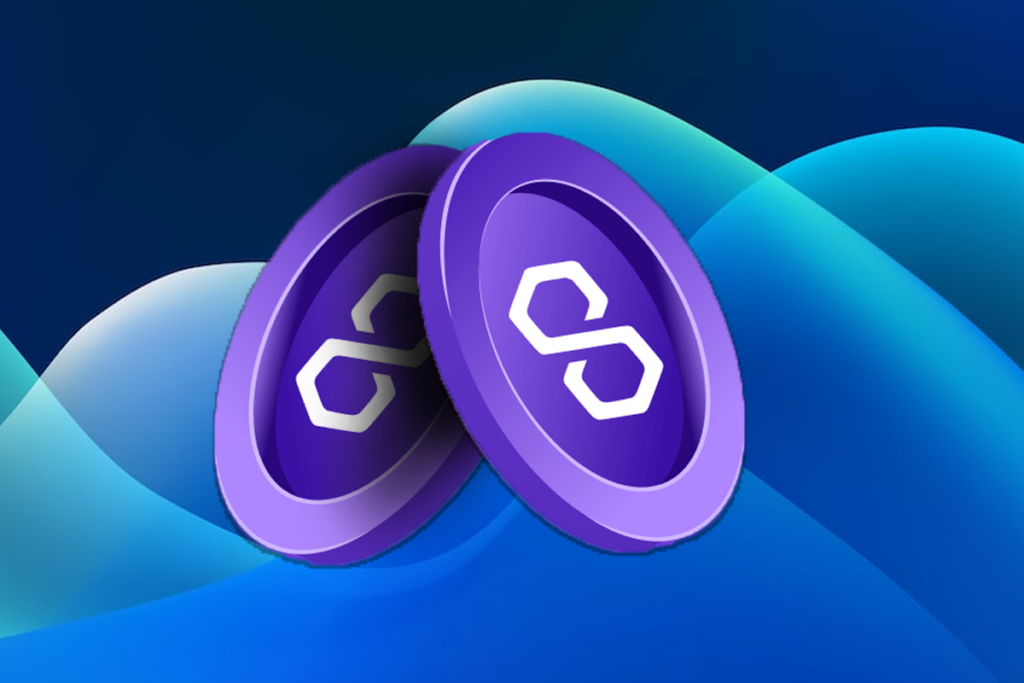Deutsche Telekom announced its collaboration with Polygon Blockchain, showcasing its foray into the realm of blockchain technology. This significant alliance establishes Deutsche Telekom as a prominent participant on the Polygon PoS network, ranking among the top 100 validators.
Deutsche Telekom And Polygon Blockchain Collaboration Announced
Deutsche Telekom, an esteemed telecommunications company with a global presence, has expanded its involvement in blockchain technology by becoming a validator on Polygon. Polygon is a high-level Ethereum Layer-2 scaling platform.
This step demonstrates Deutsche Telekom’s support for the network’s ecosystem. Deutsche Telekom’s subsidiary, Deutsche Telekom MMS, has extended its validation nodes to include Polygon, building upon its previous engagements with Q, Flow, Celo, Chainlink, and Ethereum.

The subsidiary now provides staking and validation services for Polygon’s Proof-of-Stake (PoS) network and Supernets solutions. Importantly, Deutsche Telekom MMS stands as one of the exclusive groups of 100 validators on the Polygon network.
The Polygon ecosystem is very developer-friendly and resource-efficient. It is based on the highest security standards of the Ethereum ecosystem.
Dirk Röder, Head of the Blockchain Solutions Center at Deutsche Telekom
The collaboration with Polygon is an important step for Deutsche Telekom MMS to fully exploit the potential of blockchain technology and enable applications suitable for mass deployment. Deutsche Telekom MMS also supports Polygon Staking, contributing to the security and decentralization of the blockchain.
Dirk Röder, Head of the Blockchain Solutions Center at Deutsche Telekom
We are excited to have Deutsche Telekom, one of the world’s leading telecommunications providers, become a validator on the Polygon network. This collaboration will pave the way for more businesses to embrace blockchain technology through Polygon and empower consumers by unlocking the ownership and autonomy that Web3 technology offers.
Michael Blank, Chief Operating Officer at Polygon Labs
Validators
Validators play a crucial role within the ecosystem of the Polygon blockchain. They have the responsibility of verifying and validating new transactions and blocks on the network. By ensuring the accuracy and security of the network, validators contribute significantly to maintaining the decentralized nature of the blockchain.
Polygon Labs, the development and expansion team behind Polygon, has created a dynamic ecosystem that offers developers convenient access to various scaling solutions. These solutions encompass zero-knowledge rollups, sidechains, app-specific chains, and data availability protocols.
Deutsche Telekom MMS, functioning as a validator, assumes a vital position in bolstering the security, governance, and decentralization of Polygon’s PoS sidechain and Supernets app-chains. This involves operating a full node, generating blocks, participating in consensus and validation, as well as committing checkpoints on the Ethereum mainnet.
Presently, Polygon’s PoS chain hosts tens of thousands of decentralized applications, processing over three million transactions daily and securing a Total Value Locked of $1.2 billion.
Polygon Supernets empower developers to swiftly construct highly performant and customizable app chains, allowing them to concentrate on their business strategies and user engagement. These Supernets enable projects to establish their own parameters for throughput, gas currency, gas limit requirements, and more.
Both of these solutions work harmoniously with the Ethereum blockchain, guaranteeing swift, cost-effective, and secure transaction processing. Any modifications made are subsequently mirrored on the Ethereum mainnet.
By supporting Polygon, Deutsche Telekom contributes to the development of a more streamlined and efficient blockchain network that has the potential to revolutionize transactional processes. This integration with Polygon signifies a significant advancement for both Deutsche Telekom and Polygon. For Deutsche Telekom, it demonstrates their bold entry into the blockchain space, showcasing their commitment to innovation and technological progress.
Deutsche Telekom’s support as a validator strengthens the Polygon network, elevating its security and reliability. This partnership also increases visibility for Polygon, potentially attracting more users and developers to the platform.
About Deutsche Telekom

Deutsche Telekom AG, commonly known as Deutsche Telekom, is a company that delivers comprehensive telecommunications and information technology solutions. Their offerings include mobile communications, IPTV products, fixed networks, internet services, and information and communication technology (ICT) solutions tailored for businesses and corporate clients.
Additionally, they provide cloud-based services such as customized infrastructure, international networks, platforms, software, as well as traditional ICT services, legacy systems, digital mobile telephony voice services, and data services like SMS and mobile internet.
The company promotes its services under the brand names T and Deutsche Telekom. With operations across Europe, Africa, Asia, and the Americas, Deutsche Telekom’s headquarters are located in Bonn, North Rhine-Westphalia, Germany.
About Polygon

Polygon serves as a scaling solution referred to as a “layer two” or “sidechain” that operates in conjunction with the Ethereum blockchain. This integration enables fast transaction processing and cost-effective fees. Within the network, MATIC functions as the native cryptocurrency, serving purposes such as covering fees, staking, and offering additional functionalities.
To access more collaboration articles: cryptodataspace.com















2 Comments